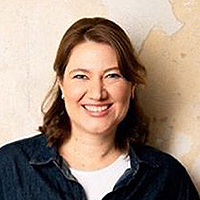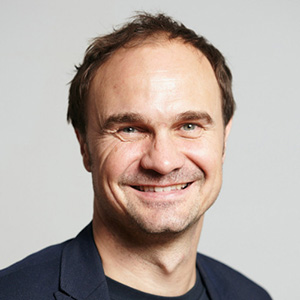Ukraine Security Guarantees + Bruegel's Green Growth & Innovation + Economic Security State + Great Power Politics + Franco-German Unity + Europe’s Trade Resilience
Which Latin American country is the EU’s largest trading partner, accounting for over one-third of all EU–Latin America trade?
Brazil
 Dear Readers,
Dear Readers,
Welcome to the Diplomacy Berlin Newsletter.
This week, we turn our focus to the intersection of entrepreneurship, security, and Europe’s global role. In our In the Hood feature, we speak with Matthias Treutwein, Chair of the Executive Board at enpact, on how equity-free founder scholarships have reshaped international development cooperation and why Europe must rethink its partnership with Africa if it seeks sustainable growth and demographic renewal.
We highlight Germany’s debate on Ukraine security guarantees, Bruegel’s call for innovation to drive green growth, and the rise of the “economic security state” as the U.S. and China weaponize interdependence. Prof. John Mearsheimer unpacks great power politics with Hungary caught in between, while the Franco-German Council reaffirms Europe’s unity. We also track Europe’s resilient trade trends despite tariffs and highlight the International Crisis Group’s vital role in global conflict prevention.
We also extend warm congratulations to the national independence celebrations of Vietnam (September 02), Qatar (September 03), Eswatini (September 06), Brazil (September 07), Andorra (September 08) and North Macedonia (September 08).
As always, if you would like to submit content for upcoming newsletters or press releases, please write to editorial@diplomacy.berlin.
With best regards,
Sigrid Arteaga
Matthias Treutwein on international development cooperation and cultural management
Before co-founding enpact e.V., Matthias Treutwein was a project manager and consultant in international development cooperation and cultural management. His stations include Transparency International, The Owners Forum, InWent, the Goethe-Institute, and the Robert Bosch Foundation. At enpact, Matthias is responsible for monitoring & evaluation, capacity building, public relations, and sustainable organizational development. Promoting networks and horizontal & lifelong learning are further focus topics for which he is also engaged outside Enpact.

Enpact has supported thousands of entrepreneurs across emerging markets since its founding. Looking back over a decade, what do you see as enpact’s biggest contribution to shaping resilient entrepreneurial ecosystems?
Our most significant success is the introduction of equity-free founder scholarships on the political agenda in international development cooperation. In our early years, we started with the obvious: Under the slogan of „from entrepreneurs for entrepreneurs“, we designed and implemented mentoring programs that focused on eye-level exchange between founders, increasing their competencies, networks, and managerial capacities. Unfortunately, there was one crucial missing piece in the mosaic: Access to funding. Here, we do not mean VC money, but a small nominal salary that covers the founders‘ backs and allows them to focus 100% on developing their businesses. The impact of this simple tool has been impressive.
Given your experience, what role should Germany and Europe play in fostering entrepreneurship as part of their foreign policy and international cooperation strategies?
There is no better way to drive economic growth than through entrepreneurship. Due to a lack of access and sheer necessity, numerous innovative solutions are being developed all across Africa. Instead of patronizing them, we should provide them with upfront trust, access to our networks, and money in the form of scholarships. At the same time, Europe should reassess its entire relationship with the African continent. It’s the closest and best option for a win-win relationship that we have. With an obvious aggressor in the East, uncertainty in the West, and nothing to the north, it is actually the only viable option left. Sometime in the near future, we may need Africa more than vice versa. Therefore, the current discussion on migration and the need to bridge the skilled labor shortage in Europe is ridiculous. We Europeans are aging, while Africa is the continent of the young. Our existing pension models are unsustainable unless we chalso change our migration policies.
Having worked across regions like MENA, Africa, and Europe, what cross-cultural insights have most influenced how you approach entrepreneurship support and organizational growth?
This is a tricky one, impossible to answer in one paragraph. Let me try it like this: In addition to the characteristic cultural differences related to power distance, uncertainty avoidance, gender, individualism, and others, the best piece of advice regarding intercultural communication is this one: Become a better communicator. And by this, I do not mean your presentation, keynote speaking, or pitching skills. Instead, try becoming a better listener. Aim also to be the first to provide value to your counterpart, instead of thinking of sales and your own benefit. It will lead you much further in the long run.
Ukraine Security Guarantees 2025: Germany’s Position and Debate
After the EU-US summit on Russia’s war against Ukraine, Berlin is actively debating the nature and extent of Germany’s role in providing security guarantees for Ukraine. German Chancellor Friedrich Merz welcomed the summit’s outcomes, emphasizing that any agreement must begin with a ceasefire, reflecting the broader European position, whereas the US has advocated moving directly to peace talks. Security operations under consideration range from enhanced training missions to proposals for a UN peacekeeping force of up to 40,000. The ongoing process underscores Merz’s assertive foreign policy, a shift welcomed by many within Germany’s ruling coalition. Read the full article on DW’s website.
No Green Growth Without Innovation
Bruegel’s policy brief demolishes the myth that green growth will emerge spontaneously without active government intervention, showing that only by combining robust public investment in clean R&D and a well-designed, EU-wide carbon price can Europe turn on the „green innovation machine“. The authors urge policymakers to avoid over-reliance on inefficient technologies and fragmented pricing, warning that any delay will drive up future costs and make climate goals harder to achieve. The brief details how more coordinated EU policy, joined-up green regulations, and targeted subsidies are necessary for long-term, sustainable growth. Read the full brief on Bruegel’s website.
The Rise of the Economic Security State
Episode from The Foreign Affairs Interview reveals how the U.S. long leveraged “weaponized interdependence” to use its dominant position in finance and technology as a strategic tool but now faces a new reality as rivals like China retaliate by weaponizing their own economic chokepoints. Hosts unpack this shift toward economic warfare and the merging of national security with economic power, discussing its implications for global geopolitics and the evolving international order. Listen for an in-depth analysis of this transformation on Apple Podcasts.
Great Power Politics in the 21st Century: Impact on Hungary
In this Geopolitical Economy Report episode, Prof. John Mearsheimer maps the evolution of global power from a bipolar Cold War world to today’s dangerous multipolar system dominated by the US, China, and Russia. He explains that the current dual conflict dyads US-China and US-Russia pose greater risks than the Cold War’s US-Soviet rivalry. Mearsheimer applies his theory of international politics to analyze these conflicts, focusing on how Hungary, as a smaller power situated between these giants, navigates this volatile landscape. Watch the talk to understand Hungary’s complex position in today’s great power dynamics on the Geopolitical Economy Report’s YouTube channel.
- Analysis: Putin Finds a Growing Embrace on the Global Stage. nytimes.com
- Security is top priority in Oslo’s new High North strategy. Nevertheless, Lavrov’s diplomats are still allowed to conspire in the region. thebarentobserver.com
- China and India May Be Moving Toward a More Coordinated Foreign Policy. foreignpolicy.com
- El Salvador Enacts Military-Style Rules on Haircuts and More in Schools. nytimes.com
Germany and France Unite for a Strong Europe
The recent Franco-German Ministerial Council, marked by a meeting between Chancellor Friedrich Merz and President Emmanuel Macron, highlights a renewed commitment to deeper cooperation on economic and security policies. Both leaders emphasized their countries‘ central roles within the EU and stressed the importance of becoming a global powerhouse politically, economically, and in security matters. The council plans to adopt an economic declaration featuring strategic concepts and flagship projects alongside a separate security policy declaration, reflecting the urgent need for a robust and united Europe amid global challenges. Read more on Germany’s foreign policy updates on deutschland.de.
Europe’s Trade Trends Surge Amid Global Challenges
Recent data reveals that Europe’s trade landscape in 2025 is marked by robust exports ($2.18 trillion) and imports ($2.11 trillion) in Q1, with the EU holding over a third of global trade share. Agricultural exports grew by 3%, while imports soared 20%, signaling strong demand amid fluctuating commodity prices. The EU’s goods trade surplus has jumped to $191 billion, bolstered by resilient sectors like chemicals and manufacturing, while increased rail freight volume suggests diversified trade routes. Despite ongoing risks from US tariffs, climate regulations, and geopolitical tensions, Europe is positioned to leverage policy reforms, sustainable practices, and technology advancements to maintain its strategic autonomy and emerge as a leader in clean, smart global trade. Explore more detailed insights on TradeImeX.
The International Crisis Group (ICG) is a premier independent organization focused on preventing and resolving deadly conflicts worldwide. Founded in the early 1990s, ICG provides detailed field-based analysis and policy advice to international bodies such as the UN, EU, and NATO, as well as national governments. It publishes the acclaimed „CrisisWatch“ identifying key crises where diplomatic engagement and early action could foster peace and stability. The organization maintains extensive global field operations to closely monitor conflict dynamics and offers actionable recommendations aimed at mitigating violence, promoting democracy, and supporting human rights. For more information, visit their official website.
StäV Berlin Mitte: Authentic German Flavours by the Spree: Located in the heart of Berlin Mitte, StäV (Ständige Vertretung) offers a vibrant atmosphere where traditional Rhineland cuisine meets political culture. The menu features a variety of hearty German and Central European dishes, along with a selection of regional beers and drinks. With spacious indoor seating adorned with political memorabilia and a scenic riverside terrace, StäV is perfect for a relaxed lunch or dinner experience. Check out their full menu and plan your visit at staev.de.
City Büroshop Koschel, located in Berlin, is a trusted destination for high-quality stationery, office supplies, and back-to-school essentials. Offering a wide range of products from writing instruments to paper goods, organizational tools, and school supplies, the shop caters to students, professionals, and businesses seeking reliable and well-stocked office and school materials. Discover a seamless shopping experience for all your stationery and back-to-school needs at bueroshop-koschel.de.
